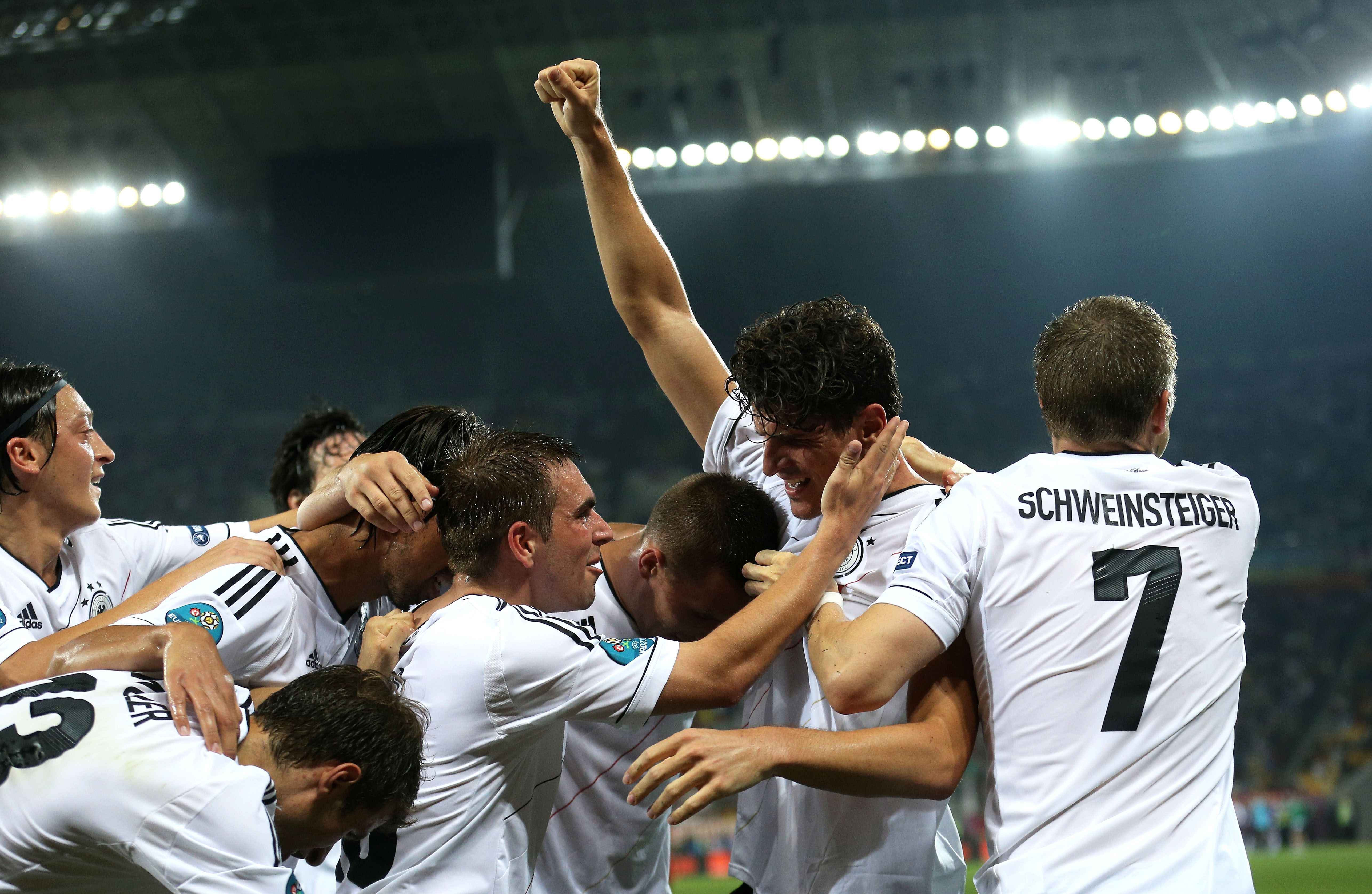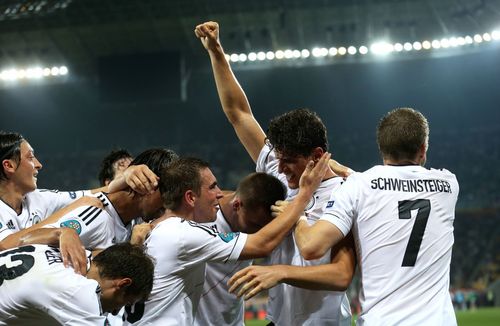
Bayern Munich and the re-emergence of German football

“Football is a simple game. 22 men chase a ball for 90 minutes, and in the end, the Germans win.” – Gary Lineker.
Germany. Having grown its industrial and political wealth multifold, they went on to try and assert their dominance on the rest of the Europe. And we all know how that turned out for the whole world.
The problem with the Germans though has never been with their spirit. Rebuilding after the war was quick and the trauma was gotten over soon by the population. After half a century of political upheaval, what the Germans wanted was stability, both socially and economically. But not mediocre stability. The Germans are not a mediocre bunch. They strive for efficiency at the highest possible level of it. And behold, now the once war-ruined and racially scarred country is THE economic force in the world.
This growth of financial muscle could be seen in every facet of the German demography. From BMW to SAP and Volkswagen to BMG, the Germans are at top of whatever they do. That also applies to their football.
This is not to say that it is a recent phenomenon. The Germans have won the FIFA World Cup thrice, and have such luminaries of the game as Frank Beckenbauer, Gerd Muller, Andreas Brehme and Lothar Matthaus just to name a few. They have also shown enough dominance in the club football scene to warrant their domestic league the tag of being one of Europe’s best, with Bayern Munich winning the European Cup no fewer than five times. They have always been a force to reckon with.
However, the Germans are prone to overdoing it when it comes to efficiency. And that is what started happening during the late 1990s. Complacency started settling into the German Football system. The stars of the 1980s were getting older and the new generation of footballers didn’t seem promising enough on the international stage when compared to the products of Spain and, especially, France’s youth products. The result was that performances in the continental events were dropping steadily and the future, once again, seemed bleak for the Germans.
This time, the Germans had learnt their lessons. The government decided to step in. They viewed football as one of their cultural exports. The aura of stardom created around Bayern Munich’s FC Hollywood and the general efficacy of their performances at the international stage had given them an international audience and a way to globalize their country’s other exports which they didn’t want to lose. Football in Germany was set for a revamp.
Contrary to expectations though, no major overhauls came as part of the revamp. Just one important bit came to the fore. Academies. The German government made it clear to the nation’s clubs that a certain part of their budget had to go towards youth development in football, right from the grass root level. All the clubs were made to plug into the new academy system which the German government setup in association with the clubs themselves. This was a massive example of a Government stepping in to save a sport’s situation in its country, rather maintaining a hands off approach towards it.
The result? A youthful German side thrashed formidable oppositions such as England and Argentina on route to the semifinals of the FIFA World Cup in 2010. That was the first sign of the emergence of something big. The stamp on the success of the program however was last season’s UEFA Champions League, whose final featured two German clubs, Borussia Dortmund and Bayern Munich, who sidestepped two giants of European club football in Real Madrid and Barcelona as they were some newcomers to the competition. Bayern Munich, true to their heritage, were victorious, but the real victory was of German football, and it was acknowledged all over the world.
The signs though, had been visible from the 2006 World Cup when three youngsters, Bastian Schweinsteiger, Philip Lahm and Lukas Podolski took the world by storm. It was no surprise that two of those three were products of Bayern Munich. Bayern has always been the torch bearer of German football, producing a plethora of great players, from Beckenbauer to Lahm.
After the disaster that was the 2000 European Championships, 2006 brought a fresh breath of air to German Football. Despite being the home team and one of the favourites to win the competition, they couldn’t make it to the finals, however, their newfound grit received a lot of praise.
They stepped it up a notch in the 2008 European Championships, playing like Champions right till the final hurdle, where it took an opportunist Fernando Torres goal after some good play by the future World Champions to get past a spirited performance by the Germans. In truth though, it was only Bastian Schweinsteiger in his new central midfield position who looked to be having the mentality to take the match to the Spanish.
After the heartbreak of the European Championships, it again took champions Spain to stop the German juggernaut in the 2010 FIFA World Cup. The newly formed trio of Schweinsteiger, Sami Khedira and Mesut Ozil showcased another facet of the new German football system, social integration. With Mario Gomez, Sami Khedira, Mesut Ozil and Serdar Tasci all owing their origins to foreign descent, this was a new found zeal in the German system to give chances to players from the whole gamut of social classes inhabiting Germany. The result was that they brought an attacking flair to the Mannschaft which was previously found missing.
So when the Germans took the field in the 2012 European Championships, they were billed as massive favourites. However a tactical masterclass from Italy and Pirlo brought them down again to a disappointing finish to a promising campaign. However, the development on the club scene, less prone to single day accidents, continued.
Bayern Munich have had the best of this new era of German football, having reached 3 Champions League finals in the last 5 years. They showed their supremacy when they rolled over Barcelona in both legs, winning by a 7-0 aggregate to make the finals. They also won their domestic league with some space to spare. Their nearest rivals, Dortmund, who couldn’t get near them in the league with their small squad, still found a way to humiliate Los Galacticos in both legs to complete the German triumph over Spain.
However, that is not the only side of this new German Football generation. What we are seeing now is the emergence of enigmatic, flair players in Germany, a previously unknown species. Players like Mario Goetze and Marko Reus, are already household names in their early 20s. They possess the lethal combination of German efficiency in passing and teamwork with a skill and pace on the ball to beat multiple defenders.
This new crop of players and approach has been a welcome inclusion in the German setup with the whole nation gushing at their abilities and their chances at the upcoming World Cup. The Germans have been never short of optimism. And neither have we.